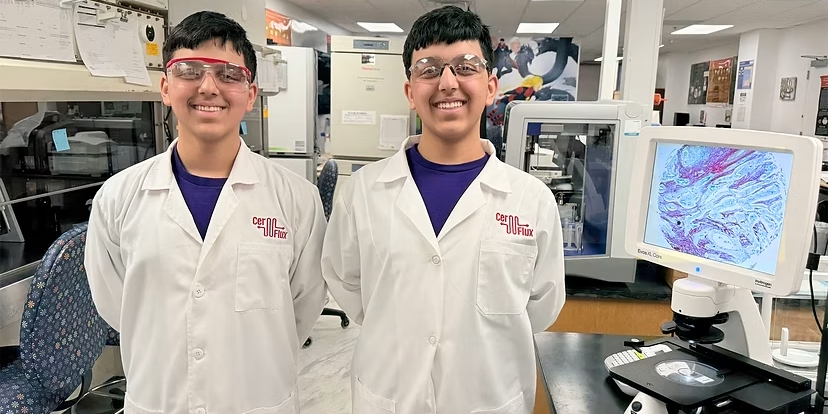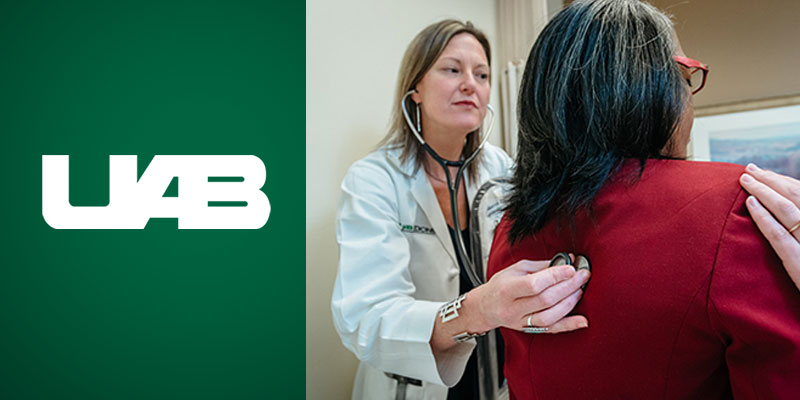The University of Alabama at Birmingham’s Trygve Tollefsbol, Ph.D., professor in the College of Arts and Sciences’ Department of Biology, has spent nearly 20 years researching cancer prevention methods with his team.
At the center of their research are the very things many young people avoid: vegetables.
Epigenetics is defined as the research and study of the modifications to DNA or surrounding proteins that impact gene expression without changing the actual DNA sequence. The changes can result in the formation of tumor cells, which could then lead to cancer.
Research shows that the bioactive components found in plants, specifically the phytochemical sulforaphane, have the ability to inhibit and even reverse these ongoing epigenetic changes to the genome when they occur.
“While all vegetables contain some form of phytochemical, which are plant-derived chemicals, it is cruciferous vegetables that contain much higher concentrations of sulforaphane,” Tollefsbol said.
Cruciferous vegetables are vegetables that belong to the plant family of “crucifers,” including but not limited to broccoli, cabbage, kale and Brussels sprouts.
Ultimately, a diet rich in these specific vegetables can help decrease the likelihood of the development of cancer through the neutralization and correction of these genomic abnormalities. Acting as inhibitors, these components can help prevent the development of tumor cells, thus decreasing the probability of cancer.
“Unlike mutations, epigenetic aberrations are readily reversible,” Tollefsbol said. “The bioactive components in these vegetables, notably sulforaphane, impact the epigenetic factors and processes in our bodies by inhibiting the development of tumors through the suppression of tumor-causing genes.”
Tollefsbol says studies show that broccoli contains some of the highest concentrations of this component.
“Stream Cruciferous Veggies
Cruciferous vegetables are vegetables that belong to the plant family of “crucifers,” including but not limited to broccoli, cabbage, kale and Brussels sprouts.
Virtually all cruciferous vegetables contain a good amount of sulforaphane; however, it is found in particularly large concentrations in broccoli sprouts,” Tollefsbol said. “Cabbage and Brussels sprouts also contain notable beneficial levels.”
While eating cruciferous vegetables is not an overnight remedy, Tollefsbol encourages everyone to increase their intake of these potentially life-changing vegetables.
“It is never too late to prioritize your health,” Tollefsbol said. “While including these foods in your diet is more impactful at a younger age, it is healthful at all ages.”
Tollefsbol suggests that preparing vegetables in a way that makes them enjoyable to you is key to improving your vegetable intake.
“Low-calorie sauces and spices are a great way to help incorporate these vegetables into your eating routines,” Tollefsbol said.
Tollefsbol says recent studies are showing that these positive effects can not only be seen in our bodies, but have the potential to decrease the likelihood of our children developing cancer later in life. Through the utilization of mouse models, studies have shown that the impact of an “epigenetics diet” can be seen generationally in the offspring of mice.
“We found that the offspring of the mice that were placed on these phytochemical diets had the genetic markers to support that they would be less likely to develop cancer,” Tollefsbol said. “We refer to these factors as transgenerational effects.”
Tollefsbol believes that, with more research and clinical trials, investigating these epigenetics factors can become the catalyst to new prevention and treatment methods.
“Imagine how many more lives we could save if we leverage prevention research,” Tollefsbol said. “If we could successfully prevent the development of cancer cells, we could ultimately save countless lives, which in itself is the goal of all health care research: How can we save and improve the quality of life?”
(Courtesy of UAB News)













